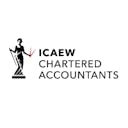Five questions to ask your accountant

Posted: Mon 4th Jul 2022
Many businesses employ an accountant to prepare their annual accounts and tax returns. But accountants can help businesses in many other ways.
Clive Lewis, head of enterprise at ICAEW, lists five questions to ask your accountant.
How can my business generate more cash?
Businesses should maintain accurate records to run more profitably, also enabling year-end accounts to be prepared earlier, meaning you will know your tax liability sooner.
Businesses should prepare a cash flow forecast, accounting for known commitments such as payroll as well as predictions of receipts, payments from future sales, purchases and expenses over the forecast period. This will highlight when the business might run low on cash and can form an action plan to remedy a situation before it happens.
They should also have a system for chasing money owing from customers. Keep the aged debtors schedule up to date for recent receipts. Chase payments and escalate contacts up the customers management chain if they do not pay as agreed.
Think about your credit rating. Agree payment terms with suppliers and always try to stick to them. Letting suppliers down will reflect in your credit rating which may come back to affect future suppliers and your ability to access finance.
What is the government doing to help exporters?
The Department for International Trade (DIT) are the department agency which supports exporters through Exporting is GREAT, organising a range of activities including:
support to participate in trade fairs overseas
sector-based trade missions and seminars
advice on how to conduct market research and grants towards approved market research projects
an export health check to assess a company's trade development needs
increasing exports through online channels
Chartered Accountants have access to the ICAEW Library & Information Service (LIS) which provides members information on a range of topics including exporting. Much of the information is also available to non-members
For more information, visit the ICAEW exporting subject gateway.
Should I be registered for VAT?
If a business has reached the current annual VAT threshold turnover of £85,000, it must register for VAT. This means adding VAT at 20%, if the sale is at the standard rate of VAT. This is a challenge for businesses serving customers who have no way of offsetting the VAT charge.
Registering for VAT usually results in a business requiring more working capital, because total debtors will increase. Businesses should be aware of cash flow, due to quarterly VAT payments; however you can account for VAT on a cash basis.
How can I improve my business?
Running a business is demanding and time consuming. Many accountants offer clients wealth planning services. It is advisable, from time to time, to review your personal wealth and discuss whether you are doing everything you can to maximise your wealth.
Business owners should also periodically consider what their longer term objectives and whether the business is going in the right direction? Is the objective to keep the business in the family or to sell it at some future time? Alternatively is a merger or acquisition a potential way forward or even a stock market listing?
Many accountants provide business health checks as part of a review process which is one way to develop longer-term plans
What are the changes to inheritance tax?
The inheritance tax threshold is currently £325,000 per person. An estate over this value attracts IHT at 40%. Transfers between husband and wife are exempt. Any unused nil rate band on the first spouse to die is transferred to the other making a total tax free value of £650,000.
You have an annual allowance of £3,000 a year, to give away and this will be exempt from IHT. There is also a small gift exemption, meaning you can give up to £250 to as many people as you like. In addition, wedding gifts up to £5,000 for parents, £2,500 for grandparents and £1,000 for everyone else.
Gifts of cash or assets worth more than the annual allowance will also be exempt as long as you survive for seven years from the date of the gift. These are known as potentially exempt transfers.
From April 2017 there will be a 'family home allowance'. This will be added to the existing £325,000 IHT threshold, meaning the total IHT threshold for a surviving spouse or civil partner will be up to £1 million. This will be phased in by 2020-21. The allowance will be gradually withdrawn for estates worth more than £2 million. The 2018/19 family home allowance is £125,000.
Relevant resources
Get business support right to your inbox
Subscribe to our newsletter to receive business tips, learn about new funding programmes, join upcoming events, take e-learning courses, and more.
Start your business journey today
Take the first step to successfully starting and growing your business.
Join for free
